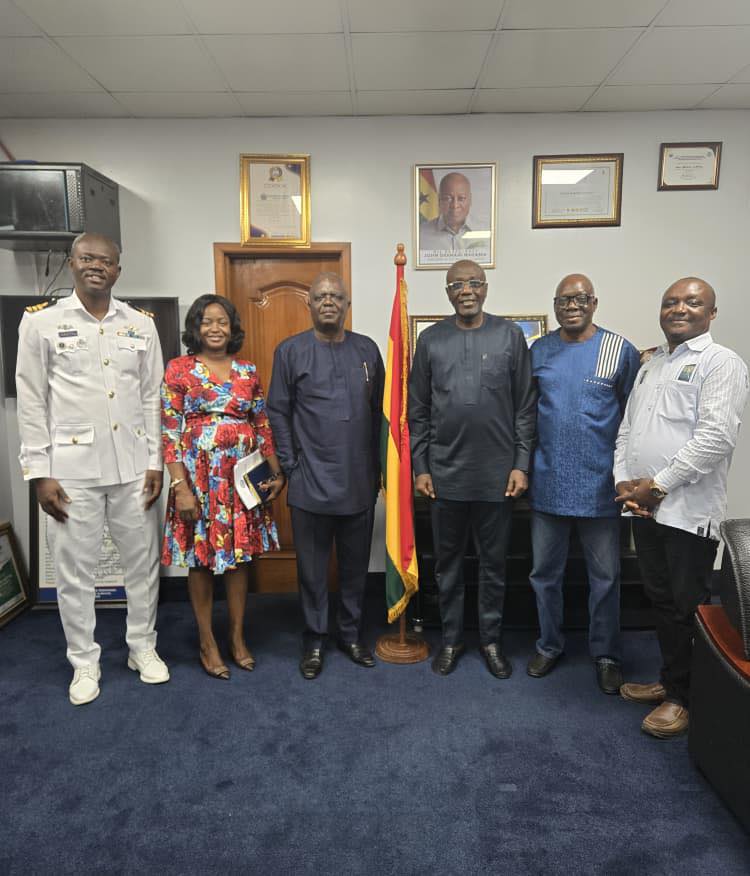Ghana’s maritime future is at a crossroads, requiring a robust and proactive strategy to navigate the complex international legal framework governing the oceans. The Director General of the Ghana Maritime Authority, Dr. Kamal-Deen Ali, convened a crucial meeting with Ghana’s representatives to various United Nations bodies focused on ocean affairs to address this pressing issue. The central theme of the meeting revolved around securing Ghana’s interests in the ongoing global dialogue surrounding the exploitation and governance of the international seabed. This area, beyond national jurisdiction, holds immense potential for resource extraction, including valuable minerals and other resources, making it a focal point for international negotiations and strategic maneuvering by various nations. The meeting served as a platform to consolidate Ghana’s position and develop a cohesive national strategy for engagement with the International Seabed Authority (ISA) and other relevant UN organizations.
The urgency of developing a comprehensive national strategy stems from the recognition that Ghana’s maritime interests are potentially vulnerable in the face of intense international competition for seabed resources. Without a clear and assertive strategy, Ghana risks being sidelined in the global arena, potentially ceding control over its maritime future and the economic benefits associated with seabed exploration and exploitation. The representatives emphasized the importance of proactive engagement with the ISA, the international body tasked with organizing and controlling all mineral-related activities in the international seabed area beyond the limits of national jurisdiction. This engagement is crucial not only for securing access to potential resources but also for shaping the regulatory framework that governs their exploitation, ensuring that Ghana’s interests are protected and that any activities in the seabed are conducted sustainably and responsibly.
The discussions during the meeting highlighted the interconnected nature of various UN bodies involved in ocean governance and the need for a coordinated approach. Mr. Asangongo Apaalse, representing the UN Commission on the Limits of the Continental Shelf, emphasized the importance of delineating Ghana’s extended continental shelf, a crucial step in establishing its sovereign rights over the seabed resources within its extended maritime zone. This commission plays a vital role in determining the outer limits of a coastal state’s continental shelf, beyond the 200 nautical miles Exclusive Economic Zone, thereby extending the area over which the state can exercise sovereign rights for the purpose of exploring and exploiting natural resources. Accurate delineation of the continental shelf is therefore fundamental to maximizing Ghana’s maritime territory and securing access to potential resources.
Mr. Richard Addo Darko, representing the Legal and Technical Commission of the ISA, underscored the importance of Ghana’s active participation in the development of the Mining Code, a comprehensive set of rules and regulations governing the exploration and exploitation of mineral resources in the international seabed area. This commission plays a critical role in advising the ISA Council on legal and technical matters related to seabed mining, including the environmental impact assessments of proposed mining activities. Active participation in the development of the Mining Code is essential for Ghana to ensure that the regulations reflect its interests and prioritize environmental protection and sustainable resource management. This involvement will also allow Ghana to contribute to the development of best practices for deep-sea mining and ensure that the exploitation of these resources benefits all of humankind, as mandated by the UN Convention on the Law of the Sea.
Mr. Solomon Korbieh, representing the Finance Committee of the ISA, highlighted the financial implications of seabed mining and the need for Ghana to understand the financial mechanisms associated with resource exploitation. The Finance Committee is responsible for advising the ISA Council on financial matters, including the financial contributions of member states and the distribution of benefits derived from seabed mining activities. A clear understanding of these financial mechanisms is crucial for Ghana to effectively negotiate its share of the benefits and ensure equitable distribution of the wealth generated from seabed resources. This understanding is also vital for planning future investments in seabed mining and ensuring that Ghana can participate effectively in this emerging industry.
The meeting concluded with a strong consensus on the urgent need for a comprehensive national strategy to guide Ghana’s engagement with the ISA and other UN bodies involved in ocean affairs. This strategy should encompass a range of critical aspects, including: clearly defining Ghana’s national interests in the context of seabed mining; actively participating in the development of the ISA Mining Code and other relevant regulations; investing in scientific research and capacity building to enhance understanding of deep-sea ecosystems and the potential impacts of mining activities; developing a robust legal framework for regulating seabed mining within Ghana’s extended continental shelf; and engaging in international collaborations to share knowledge and best practices related to sustainable seabed resource management. The development and implementation of this national strategy will be pivotal in safeguarding Ghana’s maritime future and ensuring that it can effectively participate in the global discourse on ocean governance and benefit from the vast potential of the international seabed.


